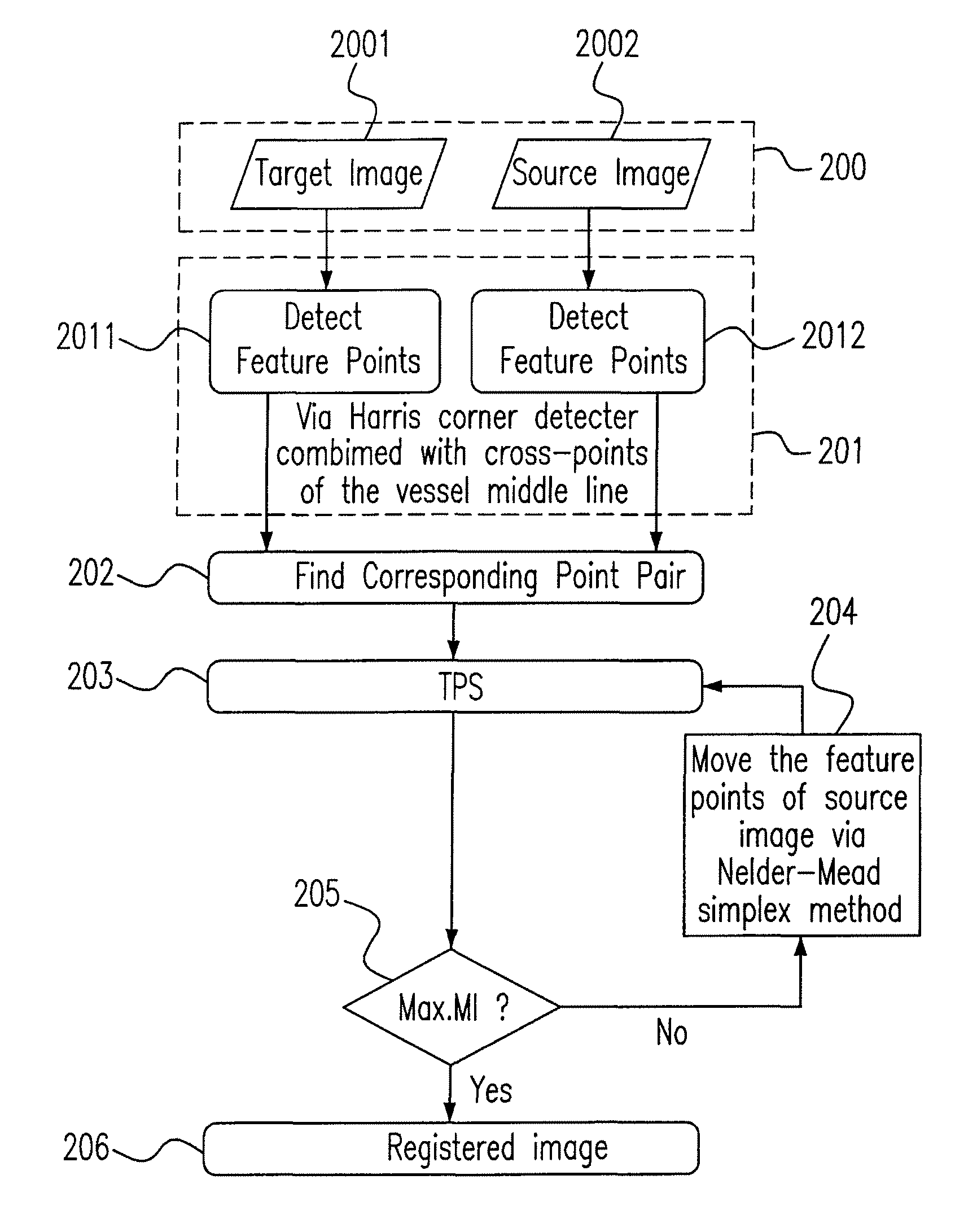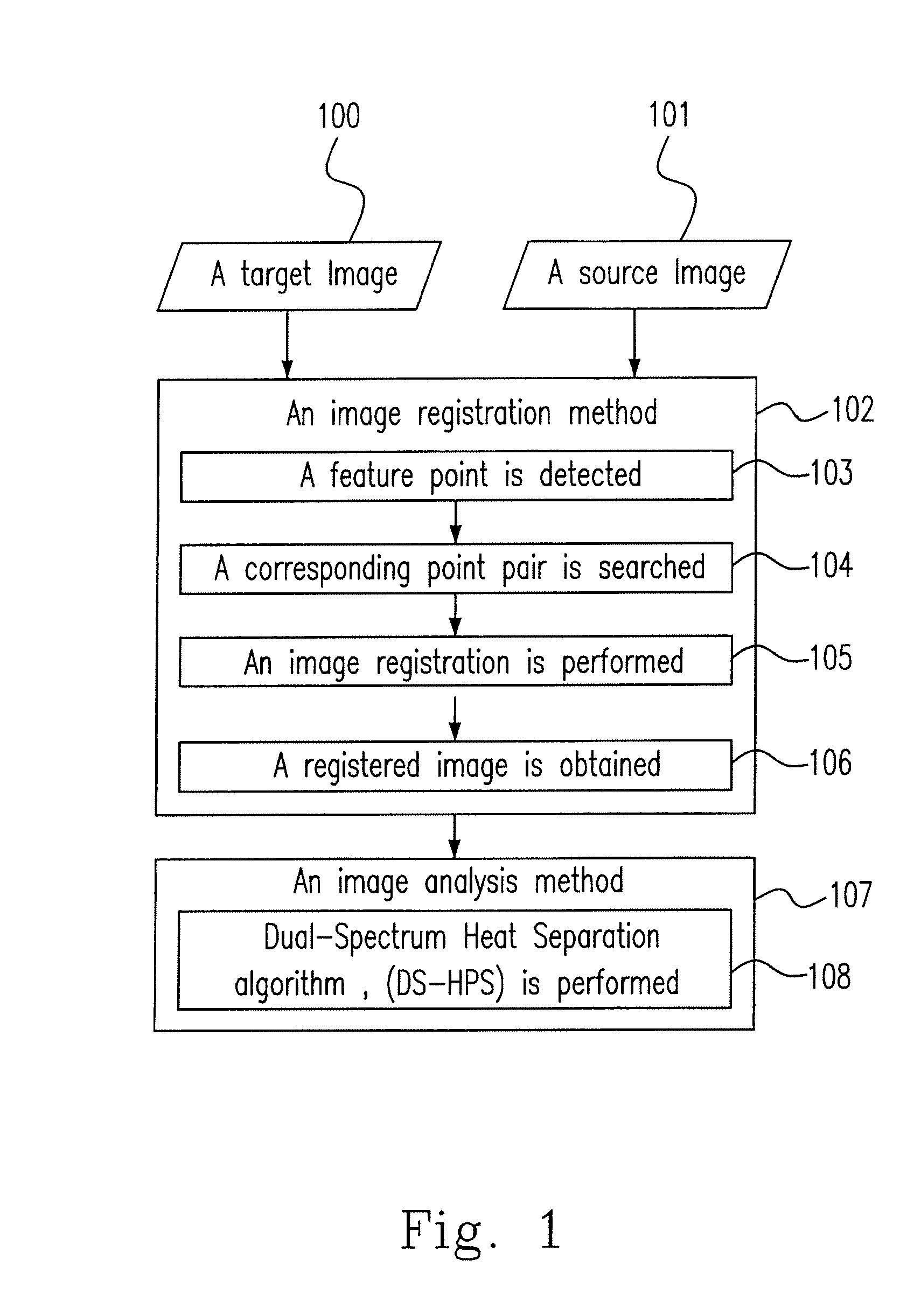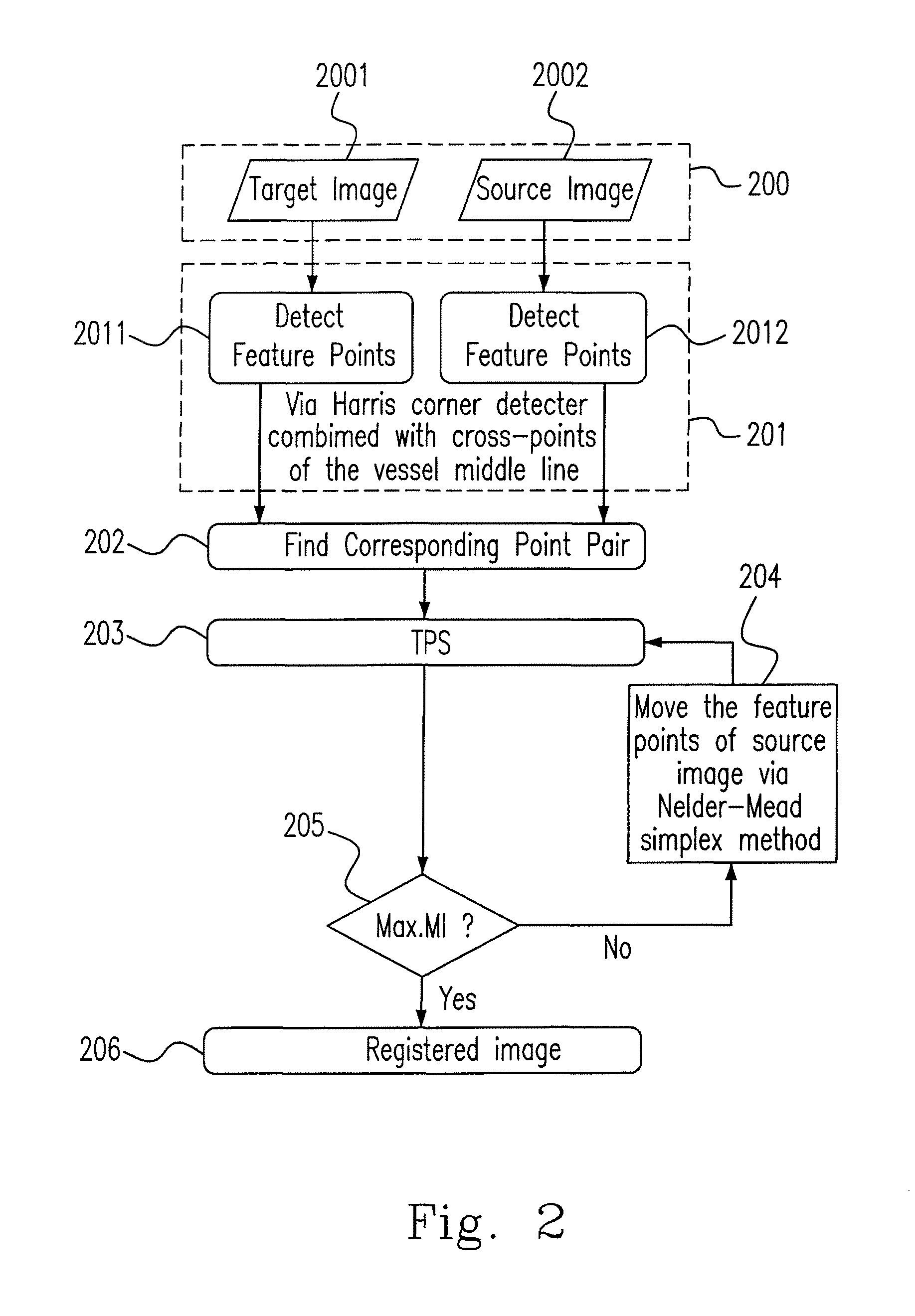Longitudinal image registration algorithm for infrared images for chemotherapy response monitoring and early detection of breast cancers
a technology of infrared images and longitudinal images, applied in the field of image registration of longitudinal infrared images, can solve the problems of difficult detection, inability to effectively achieve the goals of any method, and difficulty in detecting, so as to maximize mutual information and improve usability. information
- Summary
- Abstract
- Description
- Claims
- Application Information
AI Technical Summary
Benefits of technology
Problems solved by technology
Method used
Image
Examples
Embodiment Construction
[0020]The present invention will now be described more specifically with reference to the following embodiments. It is to be noted that the following descriptions of preferred embodiments of this invention are presented herein for the purposes of illustration and description only it is not intended to be exhaustive or to be limited to the precise form disclosed.
[0021]A spatiotemporal registration algorithm to quantify longitudinal infrared images is established and shown in FIG. 1. Please refer to FIG. 1, which shows the software framework diagram of the present invention for quantifying longitudinal infrared images. Our basic idea is to estimate the heat pattern change on the breast skin with IR photon information from a pair of MIR and LIR cameras. To quantify the change of the heat pattern, a dual-spectrum heat pattern separation (DS-HPS) algorithm (U.S. application Ser. No. 12 / 965,642, Dec. 10, 2010, filed by the applicant) is developed to separate the tissue area of high temper...
PUM
 Login to View More
Login to View More Abstract
Description
Claims
Application Information
 Login to View More
Login to View More - R&D
- Intellectual Property
- Life Sciences
- Materials
- Tech Scout
- Unparalleled Data Quality
- Higher Quality Content
- 60% Fewer Hallucinations
Browse by: Latest US Patents, China's latest patents, Technical Efficacy Thesaurus, Application Domain, Technology Topic, Popular Technical Reports.
© 2025 PatSnap. All rights reserved.Legal|Privacy policy|Modern Slavery Act Transparency Statement|Sitemap|About US| Contact US: help@patsnap.com



